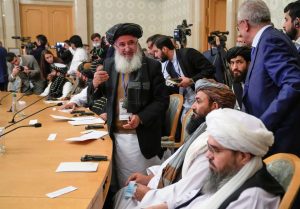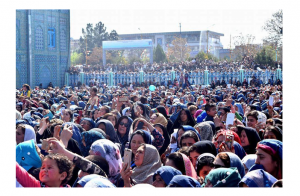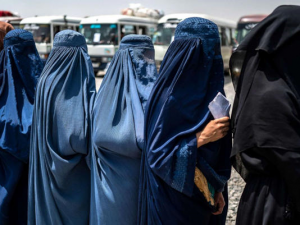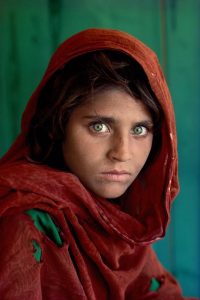By: Dr. Shaida Abdali
Japan, a peace-loving nation has consistently followed the path of peace building and development around the world since the end of World War II.
As a historic friend of Afghanistan, Japan laid the foundation for post-conflict reconstruction and peace building process of Afghanistan by hosting the first Tokyo International Donor Conference in 2002 and ultimately becoming the second largest donor after the US in Afghanistan. After 20 years of post-conflict reconstruction and state-building, Afghanistan took a U-Turn on August 15, 2022, with the collapse of an elected government in Kabul.
Afghanistan is once again at a crucial juncture of its history. As Winston Churchill once said, “Those that fail to learn from history are doomed to repeat it”.
Following the Soviet’s withdrawal from Afghanistan in 1989, the world turned its back on Afghanistan. Consequently, the abandonment of Afghanistan not only led to the complete dilapidation of the Afghan state institutions and the beginning of civil war, but it also paved the ground for global terrorism to spread its roots in Afghanistan. An era of killing and destruction began with victorious Jihadi groups fighting each other for territory and power. In competition for power and international recognition, the Jehadi groups further deepened their ties with the neighboring countries.
Consequently, Afghanistan quickly became a competing ground for a proxy war among its neighboring countries. The regional power play in Afghanistan subsequently took the country to a civil war, where hundreds of thousands of Afghans lost their lives, millions became refugees and the country’s relatively developed infrastructure was turned into debris. Afghanistan’s state institutions both civil and military were dismantled. The country’s large arsenal of state-of-the-art weapons was either destroyed or sold to the neighboring countries. Similarly, a sizable Afghan air force with hundreds of different aircrafts was either wrecked or sold at rock-bottom prices to whomever was interested.
The tragedy of Afghanistan didn’t end just with devastating impacts on the internal social, security and economic fabric of the country. Violent political changes and internal fighting made the country a hub of international terrorism. Global terrorist networks from around the globe, in search of safe sanctuaries, found their way to Afghanistan. Major terrorist groups such as Al-Qaeda established shop in Afghanistan, from which they exported terror to other parts of the world.
Furthermore, poppy cultivation in Afghanistan skyrocketed and became the main source of income for terror groups. The country became a narco-state, with 80% of total global poppy production taking place in Afghanistan. Billions of US dollars’ worth of opium and its derivatives were trafficked to Central Asia, Iran, Pakistan, India, Turkey, Africa, Europe, and even the United States. The lion’s share of the drug profit did not go to the Afghan farmers or petty traders, it went to terror groups and their allied drug traffickers, who mostly lived in heavily protected villas in the neighboring countries and the more advanced parts of the world. While the drug traffickers and their state-related protectors prospered, the poverty level inside Afghanistan continued to rise. Afghanistan’s agricultural sector, the main source of Afghans’ livelihood, was undermined and replaced with poppy cultivation. Consecutive droughts further aggravated the country’s agriculture, thus worsening an already devastating economic situation for Afghans. For quick income, legal crops and orchards were replaced with illicit poppy fields in large parts of the country. Major drug factories to process poppy were established in Afghanistan.
Despite early warning calls by various independent Afghans regarding a pending catastrophe, the world community turned a blind eye and didn’t act. Afghan lives and their worsening socio-economic situation didn’t matter to the world community. Human rights violations, lack of proper governance, injustice, repressive rule that included a ban on girls’ education, and a ban on women working outside their homes lived on for years without any action taken by the world.
The voice of Afghanistan was only heard when the incident of September 11, 2001, occurred. Around 3,000 Americans died in two terror attacks on New York and Washington. Those incidents triggered a global alliance led by the US to invade Afghanistan and topple the Taliban regime, who, by defeating other armed groups, had grabbed the state power in 1996. An alliance of over 40 countries entered Afghanistan for fighting terrorism, peace-keeping, and rebuilding Afghanistan. For the first time in history since World War II, global powers from the East and the West (US, Russia, China, India, Iran, Saudi Arabia, and others) saw eye to eye on Afghanistan. These rivals not only sat around the same table to fight terrorism but also implemented joint development projects in Afghanistan.
Japan, a historical friend of Afghanistan, laid the foundation for the post-2001 reconstruction process of Afghanistan by hosting the first Tokyo International Donor Conference in 2002 and ultimately becoming the second largest donor after the US in Afghanistan. Over a hundred countries and international aid agencies participated in the conference. Billions of US dollars in aid were pledged in the conference. Afghanistan’s reconstruction and institution building plans were laid on the solid foundation of a successful Tokyo Conference.
Millions of Afghans returned back to Afghanistan. Schools and universities were reopened. Thousands of new schools and hundreds of universities were constructed. Millions of boys and girls went to receive proper education. Health services were rehabilitated. Thousands of kilometers of new roads were constructed. Afghanistan’s economy began to grow once again. A number of major development projects were implemented, including building dams, canals, railways and bridges to connect Afghanistan with its neighbors. Afghanistan’s business relationships were connected to the entire region and beyond. A number of capacity building and institutional development programs were implemented. As a result, the transition process to rebuild and Afghanize the Afghan government and state institutions was largely completed by 2014, transferring civilian and military responsibilities to Afghans. Around three hundred thousand Afghan National Security forces were trained and well equipped to take over security responsibilities from US-NATO forces. A sizeable Afghan Air force was built, with over 200 aircraft that was able independently to conduct counterterror and logistic operations throughout the country.
The hard-earned improvements of the last 20 years of Afghan-international efforts came to a screeching halt when, on August 15, 2021, the government in Kabul fell because of fundamental flaws in what came to be known as the Doha Peace Process. A process that was supposed to bring peace and reconciliation to Afghanistan turned into a nightmare for millions who had participated in the revival and reconstruction of their country. The entire state system, including the country’s civilian and military sectors, was dismantled overnight. The Afghan President and some other high state officials escaped the country. The Taliban took over Kabul and the rest of the country in a matter of just a few days.
Consequently, Afghanistan was cut off from the rest of the world. The country’s state economy collapsed. Panic erupted in the whole country; Afghans rushed to the airport fearing for their lives. Hundreds of thousands of young and educated Afghans fled the country. Dozens of Afghans’ miliary aircraft were flown to the neighboring countries, including the helicopters that took the President and his high officials to Uzbekistan. The Taliban formed their own government, dissolved the parliament, and suspended the country’s republican constitution. They defied calls from within and outside Afghanistan to form an inclusive government to represent the whole country. Women were banned from going to government offices, and mid-level and higher-level girls’ schools were closed. Afghanistan’s diplomatic and trade relationships were put on hold.
Today, more than a year since the Taliban took over, no country in the world has officially recognized the Taliban government. The ordinary people of Afghanistan are bearing the brunt of a worsening situation. The country faces severe food shortages. Drought, flooding and earthquakes have doubled the miseries of the Afghan people. Unemployment has gone up and over 90%. Today, Afghanistan and its 40 million people are at the worst juncture of their long history.
There can be no doubt that Afghanistan is on the brink of a total collapse. The country needs urgent attention to prevent it from falling into yet another quagmire of internal catastrophe and external tragedy. Fourteen months on since the political change, the socio-economic, political and security situation is going from bad to worse. Poverty and unemployment are on the rise; ninety percent of the population is facing food shortages; minority ethnic communities (including our Hazara citizens) are being killed, terrorized, and systematically persecuted; people are fleeing the country for jobs and safety; education for girls above grade six is still banned; women continue to be banned from outside work; a resistance movement against the Taliban is taking shape in certain parts of Afghanistan; and bomb blasts in public places, particularly in mosques and schools, are frequent.
More importantly, foreign terror networks are returning to Afghanistan. The episode of Al-Qaeda leader Ayman al-Zawahiri in Kabul city is a prime example. Most of the recent terrorist attacks in schools and mosques were claimed by ISIS. The Taliban have failed in providing security to the people and fulfilling their promise of forming an inclusive Afghan Government. The de facto government faces serious governance and technical-capability issues. Lastly, and most important of all, the country has no constitution. As a result, the de facto government has neither gained internal legitimacy nor external recognition.
Can Japan play a role to help Afghanistan and its people with the trauma they are faced with today?
My answer to this question is a definite yes. Based on their memories of the past, Afghans of all ethnicities and professional backgrounds consider Japan to be an old and trustworthy friend of their country. By following a two-pronged policy of genuine economic assistance and political non-interference towards their country, Japan has gained the respect and trust of the Afghan people. Afghan governments and policy makers in the past aspired to emulate Japan in its path to economic development and social change.
Post-World War II diplomatic relations and Japanese economic and political support of Afghanistan during the past 20 years, have put Japan in the unique position of the only country in world, which Afghans can trust and will listen to. Japan and its people enjoy a great deal of goodwill among the Afghans. It is time for Japan to assist the people of Afghanistan to come together and find solutions to the challenges they are facing. The Japanese experiences of the past can serve as a good role-model for the people of Afghanistan to embark on a peaceful path to a new future.
More specifically, to prevent Afghanistan from sliding deeper into the quagmire of poverty, lawlessness, drug production, and terrorism, Japan should take the lead and launch an Afghanistan International Conference, like the Tokyo Conference of January 2002 and subsequently in 2012. In the two conferences, billions of dollars were raised for the socio-economic development of Afghanistan. This time, the conference shall not be about fundraising; it must be about bringing together Afghans and the world community to sort out their differences and reignite the process of reform and development in the country.
Japan is well-positioned to take on such an important international initiative and play a more useful role as it assumes shortly its non-permanent membership at the UN Security Council. This should enable Japan to call for a Bonn II format and tangibly support a much stronger mandate for the United Nations Assistance Mission in Afghanistan (UNAMA) to help revive intra-Afghan peace talks for forming an inclusive government that is acceptable to both Afghans and the international community. Knowing the people of my country well, I strongly believe that Japan’s initiative in this regard, and Japan’s recommendations on how to proceed to save Afghanistan, will be welcomed by every single Afghan living inside and outside of the country.
——————————————————————————————————————-
Dr. Shaida Mohammad Abdali is the Ambassador of Afghanistan to Japan (2020-present). He formerly severed as Deputy National Security Advisor of Afghanistan (2009-2012), as well as Ambassador of Afghanistan to India (2012-2018).




